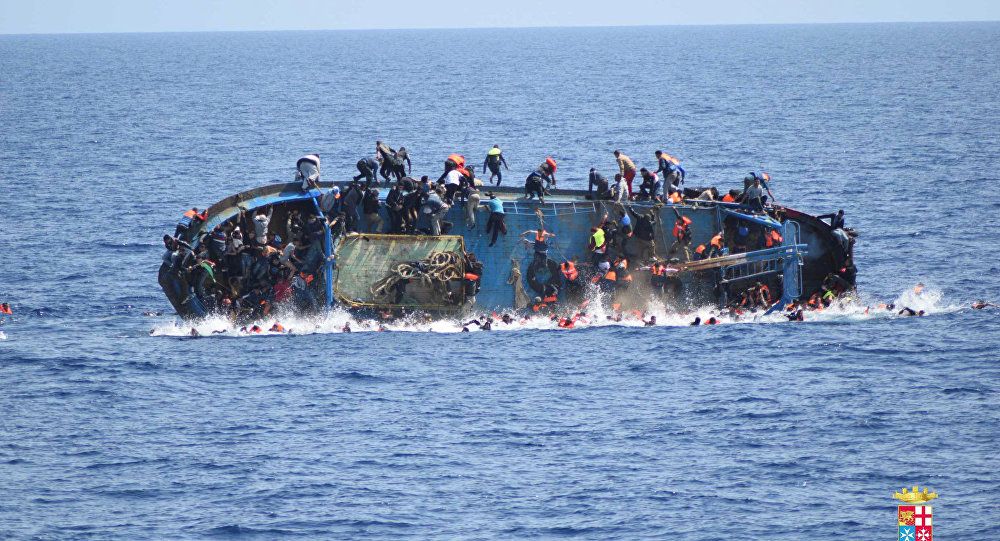Horror As 200 Migrants From Nigeria, Others Drown In The Mediterranean Sea

According to NAN, IOM’s Public Information Officer in Libya, Christine Petré, reported that the boats carrying the migrants departed from the coastal towns of Azzawiyah and Al Khums in Libya.
“Most of the survivors hail from African countries, including Senegal, Mali and Nigeria. The Libyan Cost Guard reported that eight were from Bangladesh while two were from Pakistan,” Petré said.
According to IOM, and a report released by Libya’s Coast Guard, about 100 people on board remain missing.
The UN migration agency said its officials were present at the disembarkation point in Tripoli and provided the survivors with food and water.
Othman Belbeisi, Chief of IOM Libya Mission, said on Wednesday that about 200 migrants or refugees had died or gone missing in the Mediterranean Sea with up to 100 unaccounted for since Saturday.
“It’s very distressing that during the first 10 days of 2018 we have seen close to 800 migrants rescued or intercepted off the Libyan coast, with more lives lost at sea.
“More has to be done to reduce irregular unsafe movements of people along the Central Mediterranean route,” Belbeisi said.
According to him, the tragedy came at a time when Mediterranean migrants’ death dropped sharply as IOM recorded only 26 on the Mediterranean Sea lanes in December 2017.
Belbeisi said while January 2017 had witnessed some 254 deaths, this week’s reports suggest that the start of 2018 may be even deadlier.
IOM reported on Tuesday that 81 Mediterranean Sea deaths of migrants or refugees were recorded in the first eight days of the year with five in Western Mediterranean waters off Spain and Morocco and the rest between Italy and Libya.
In the latest, and third deadliest, shipwreck in the Mediterranean since Saturday, the Libyan Coast Guard rescued three rubber boats with 279 migrants made up of 19 women, 243 men, 13 boys and four girls, in an operation lasting at least 12 hours.
The UN migration agency said it continued to provide support and direct humanitarian assistance to the survivors of this latest tragedy, many of whom now are at Libya’s Tajoura detention centre.





Post a Comment